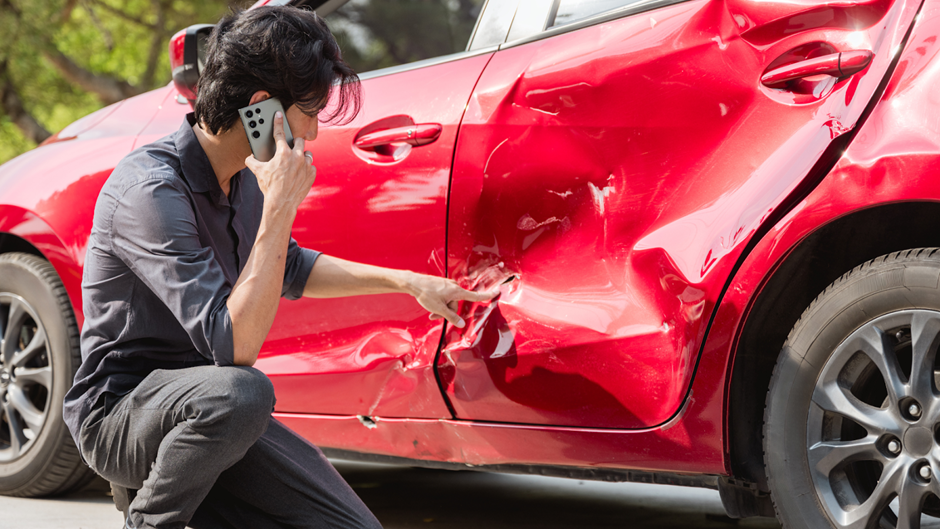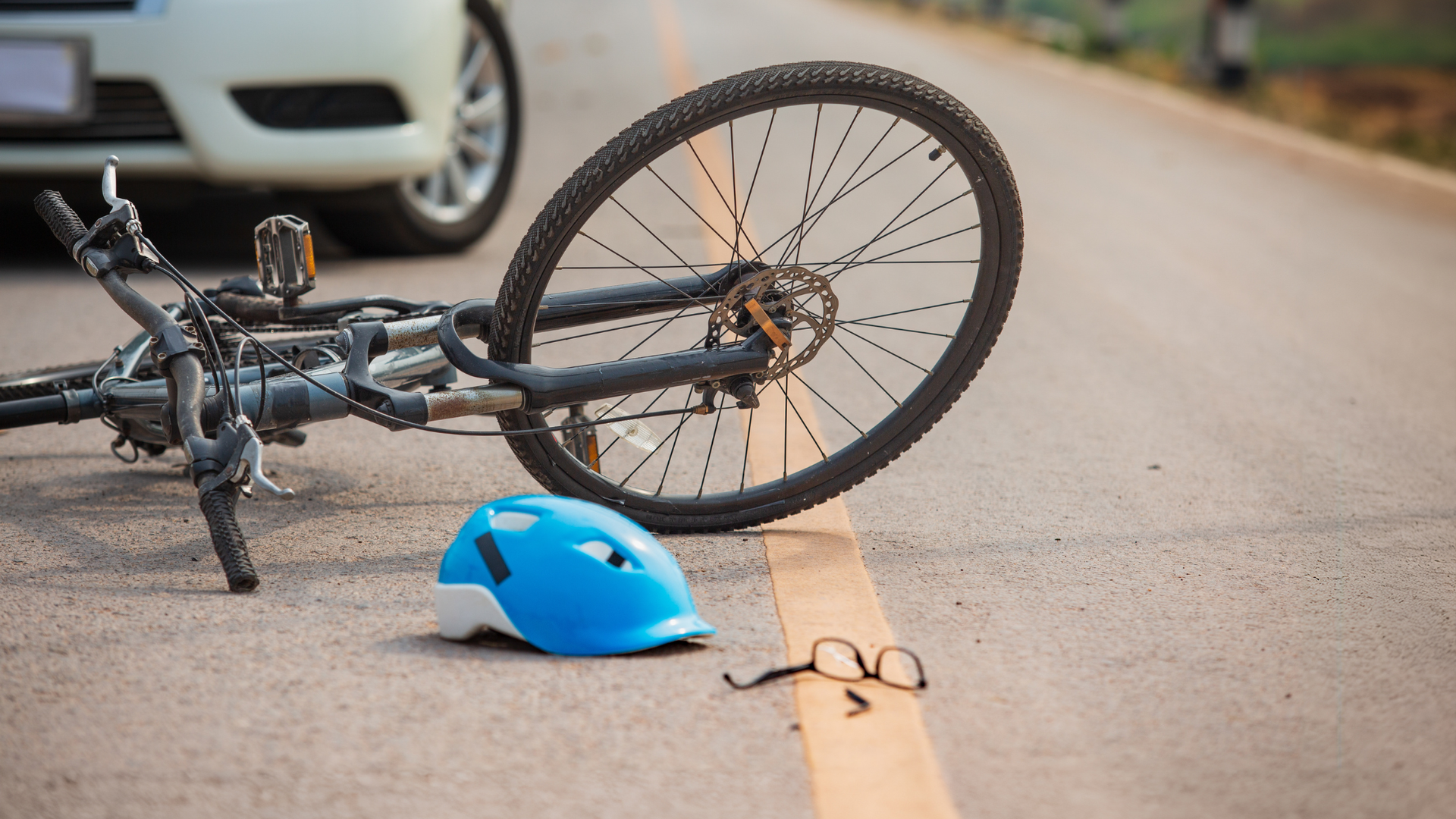How a Preston Rideshare Accident Lawyer Protects Your Rights After an Uber or Lyft Crash
Most people open an Uber or Lyft app expecting a simple ride across town, not a trip that ends with flashing lights, confusion, and uncertainty about what to do next. Yet rideshare accidents can happen in seconds, even during routine trips. When they do, the situation can quickly become legally complicated. Unlike a standard car crash, there are layers of insurance, company policies, and driver responsibilities involved.
As a Preston Rideshare
Accident Lawyer, I’ve seen how overwhelming these cases can feel for passengers, drivers, and even other motorists. Protecting your rights after an Uber or Lyft crash requires careful steps, early documentation, and a clear understanding of who is responsible.
Understanding Rideshare Liability: Who’s Really Responsible?
Rideshare accidents differ from ordinary collisions because multiple parties may share liability. Determining who pays for the damage often depends on timing, specifically, what the driver was doing at the moment of the crash.
There are generally three potential layers of insurance coverage:
- The rideshare driver’s personal auto insurance. Every Uber or Lyft driver uses their own vehicle. If the rideshare app was off, their personal insurance applies, just like in any other private accident.
- Uber or Lyft’s commercial insurance. When the app is on and the driver is waiting for a ride request, the company provides limited liability coverage. Once a passenger is accepted or in the vehicle, full commercial coverage activates.
- Other parties involved. Sometimes another driver, pedestrian, or even a third vehicle contributes to the crash. In those cases, responsibility may be shared.
In Connecticut, negligence is the key principle. The law examines whether someone failed to act as a reasonable driver would under the circumstances. Because rideshare cases can involve both corporate and individual policies, identifying exactly who was negligent is essential for fair compensation.
Common Causes of Rideshare Accidents
Uber and Lyft drivers spend long hours navigating busy roads, which can increase the risk of error. I often see several recurring factors:
- Distracted or fatigued driving: Drivers rely heavily on GPS and ride notifications, which can take their eyes off the road. Long shifts also lead to exhaustion.
- Pressure to accept more rides: The financial incentive to stay busy can make drivers rush between pickups.
- Unsafe road conditions: Poor lighting, construction zones, or slippery roads all raise accident risks.
- Vehicle maintenance issues: Since rideshare vehicles are personally owned, upkeep can vary widely.
- Third-party drivers: Aggressive lane changes or speeding by others frequently contribute to rideshare collisions.
Each of these factors affects how fault is assigned and what type of coverage applies.
What to Do Immediately After a Rideshare Accident
The moments after a crash are chaotic, but actions taken then can significantly influence your case. Here’s what I always advise:
- Stay calm and ensure safety: Move out of traffic if possible and check for injuries.
- Call the police: A police report provides a neutral record of what happened.
- Document everything: Take photos or videos of the scene, vehicle damage, and any visible injuries.
- Exchange information: Collect contact details from all drivers and witnesses.
- Report through the app: Uber and Lyft have in-app systems for reporting incidents.
- Seek medical attention: Even minor pain can mask underlying injuries.
- Avoid recorded statements: Do not give detailed statements to insurance representatives without legal advice.
Simple mistakes made early like posting about the accident on social media or assuming the company will handle it can complicate your claim later.
How a Preston Rideshare Accident Lawyer Protects Your Rights
When I take on a rideshare case, my role is to protect clients from being overwhelmed by insurers, paperwork, and uncertainty. Here’s how that happens in practice:
- Investigating every detail: I collect and review police reports, rideshare app data, driver logs, and witness accounts. This helps establish an accurate timeline of events.
- Evaluating insurance coverage: Each phase of the rideshare process triggers different policies. Determining which one applies can change the outcome entirely.
- Managing communications: Insurance adjusters often seek statements or settlements that limit company liability. I handle those interactions so clients can focus on recovery.
- Documenting losses: From hospital bills and lost income to long-term pain and emotional distress, every damage must be recorded.
- Advising on settlement offers: I explain options clearly, ensuring clients understand the full implications before agreeing to anything.
The goal is not confrontation for its own sake but protection making sure no one is pressured into decisions that undermine their rights.
Navigating Uber and Lyft Insurance Policies
Uber and Lyft have tiered insurance structures based on the driver’s status. Understanding those layers is crucial:
Driver Status
Coverage Level
Typical Source of Insurance
App off
Personal insurance only
Driver’s own policy
App on, no passenger
Limited liability
Uber/Lyft contingent policy
Ride accepted or in progress
Full coverage
Uber/Lyft commercial policy
Problems arise when insurers dispute which period applies. For instance, if the driver had just accepted a ride but hadn’t yet picked up the passenger, both personal and company insurers might deny responsibility.
That’s where legal interpretation becomes essential. Insurance policies contain specific terms about active trips, coverage triggers, and app status verification. Understanding how those clauses work, and how to prove them with data from the rideshare app—can be the difference between full and partial recovery.
The Legal Process in Connecticut for Rideshare Accidents
Rideshare claims in Connecticut follow the broader personal injury framework but with added procedural complexity.
- Filing a claim: After gathering medical records, bills, and evidence, a formal demand letter is sent to the responsible insurer.
- Negotiation: Most cases begin with back-and-forth negotiation over damages. Honest, documented communication can lead to a fair settlement.
- Statute of limitations: In Connecticut, you generally have two years from the date of the accident to file a personal injury lawsuit. Missing that window can forfeit your rights entirely.
- Comparative negligence: Connecticut follows a modified comparative negligence rule. If you are found partly at fault, your compensation may be reduced proportionally—but as long as you are less than 51% responsible, you can still recover.
- Settlement or trial: Many rideshare cases resolve through negotiation, but if an insurer refuses fair payment, the matter proceeds to court.
Every stage requires careful timing and documentation. There’s no substitute for patience, clarity, and evidence-based reasoning.
Communication and Client Involvement
In my office, I believe that trust begins with transparency. Clients deserve to know what’s happening with their case at every step. I encourage open dialogue because informed decisions are better decisions.
When someone hires me, they work directly with me from start to finish. Cases are not passed to paralegals or junior associates. I read every document, draft every filing, and personally communicate with opposing counsel and insurers.
That level of involvement allows me to maintain accuracy, uphold ethics, and keep clients from feeling lost in a process that can often seem impersonal.
Honesty isn’t just a value statement; it’s the foundation for effective advocacy.
Mistakes to Avoid After a Rideshare Accident
Even strong cases can weaken if key missteps occur. These are some of the most common pitfalls I warn clients about:
- Delaying medical care: Waiting too long to see a doctor can make injuries seem less serious and harm your credibility.
- Posting on social media: Casual posts or photos can be taken out of context by insurance companies.
- Signing documents too early: Never sign a release, settlement check, or waiver without understanding its full impact.
- Assuming coverage: Uber and Lyft insurance policies are not automatic; they depend entirely on the driver’s app status and other details.
- Skipping documentation: Failing to keep receipts, medical records, or photos can make it harder to prove losses later.
When to Contact a Preston Rideshare Accident Lawyer
Once immediate medical needs are handled, it’s important to get legal guidance quickly. Contact a
Preston Rideshare Accident Lawyer if:
- The insurance company delays or denies your claim.
- Fault is being disputed between drivers or companies.
- You’re unsure which insurance policy applies.
- You’ve suffered significant injuries, missed work, or face lasting symptoms.
Early involvement ensures that critical evidence such as app data, witness statements, or vehicle information is preserved. Waiting too long can allow those records to disappear, limiting your ability to build a strong case.
The Overlap Between Rideshare and Other Injury Cases
While this discussion focuses on rideshare incidents, the principles often overlap with other personal injury situations, including slip and fall accidents, workplace injuries, or pedestrian collisions. The same main idea applies: someone’s negligence led to harm, and the injured person deserves fair compensation for the consequences.
Understanding how to navigate evidence, documentation, and insurance negotiation in one area strengthens the ability to handle others. That’s why many lessons from rideshare claims: clear communication, thorough investigation, and ethical advocacy translate across all injury cases.
Conclusion: Protecting What Matters After an Uber or Lyft Crash
A rideshare crash can upend a person’s sense of safety and trust in seconds. Beyond the physical pain, there’s the stress of medical bills, missed work, and unanswered questions about what happens next. These moments call for careful attention to rights, evidence, and fairness.
Every step, from filing insurance notices to evaluating settlement offers, must be handled with integrity. Clients deserve clear explanations and honest guidance, not pressure or confusion.
At Eric
Santoro Injury Law, LLC,
I personally guide clients through rideshare injury claims with respect, transparency, and over two decades of Connecticut legal experience. Each case receives individual attention, every question deserves an answer, and every client is treated as a partner in the process of rebuilding after an accident.



